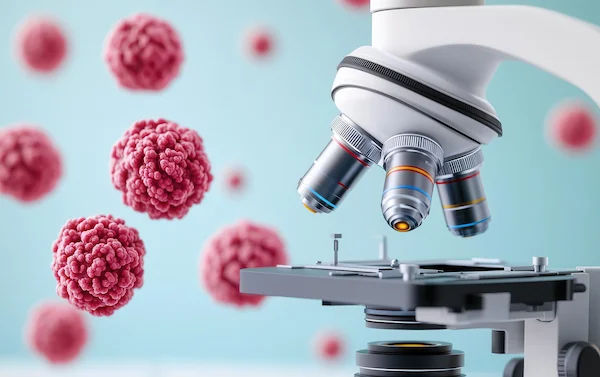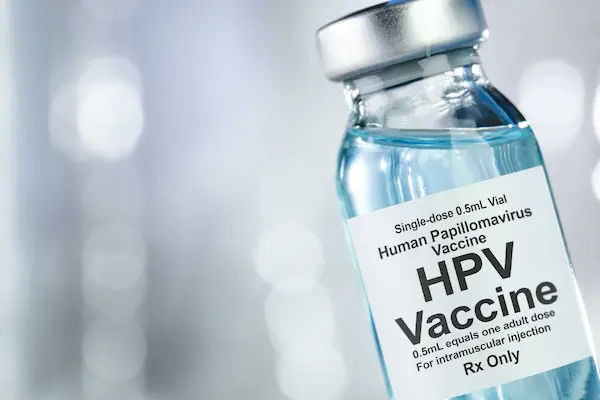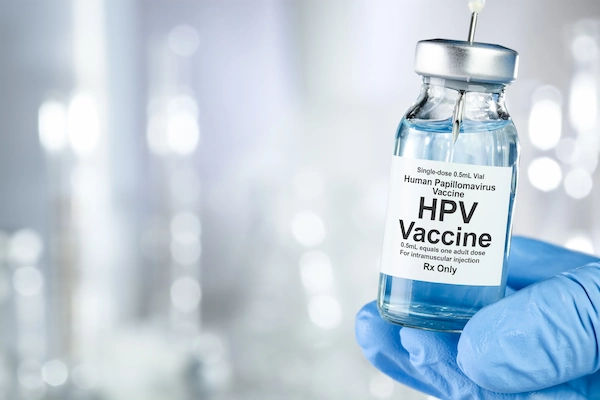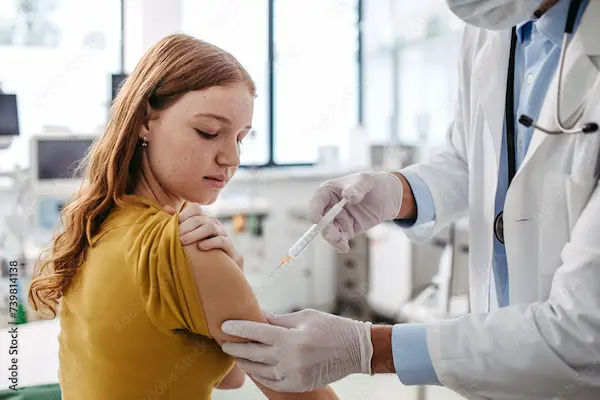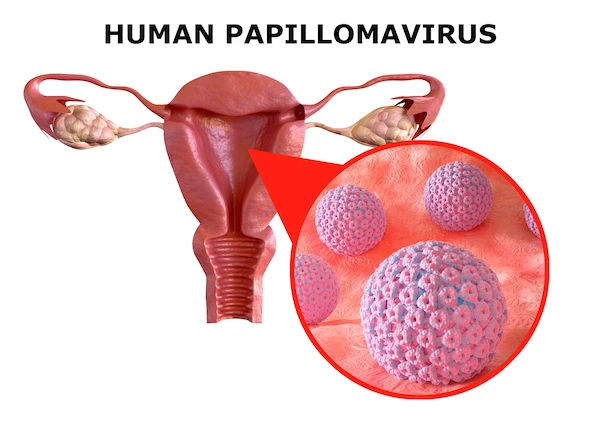What Leads To Signs Of Human Papillomavirus And
Explore the common causes and diverse signs of HPV (Human Papillomavirus). Learn how this common virus manifests and what to look for.


What exactly is Human Papillomavirus (HPV)?
Human papillomavirus is not a single virus but a group of more than 200 related viruses. Over 40 of these types can be easily spread through direct sexual contact, affecting both men and women. The term "papilloma" refers to a kind of wart that can result from some HPV types. It's crucial to understand that contracting the virus is common, but in most cases, our immune system successfully clears the infection within one to two years, often before it ever causes any signs or health problems.
The Two Main Categories: High-Risk vs. Low-Risk HPV
HPV types are categorized based on their potential to cause cancer.
- Low-Risk HPV: These types (e.g., HPV 6 and 11) do not cause cancer but can cause skin warts, including genital warts. These warts might be bothersome or cause emotional distress, but they are not life-threatening.
- High-Risk HPV: These types (e.g., HPV 16 and 18) can lead to cancer if the immune system does not clear the infection. A persistent infection with a high-risk HPV type can cause changes in cells that may develop into cancer over many years, most commonly cervical cancer, but also cancers of the throat, anus, penis, vagina, and vulva.
The Primary Cause: How HPV is Transmitted
Understanding transmission is key to understanding what leads to signs of HPV.
Skin-to-Skin Contact: The Core Mechanism
HPV is primarily transmitted through intimate, skin-to-skin contact. This most often occurs during vaginal, anal, or oral sex with someone who has the virus. The critical point is that penetration is not required for transmission. The virus can be passed even when an infected person has no visible signs or symptoms, which is why it is so widespread.
Beyond Intercourse: Other Modes of Transmission
While much less common, HPV can theoretically be transmitted through:
- Non-sexual intimate contact: Prolonged touching of genitals.
- Vertical transmission: A mother can pass the virus to her baby during childbirth, though this is rare and can lead to a condition called recurrent respiratory papillomatosis in the child.
- Fomites: There is some debate about transmission via objects like sex toys or towels, but this is not considered a significant route.
From Infection to Signs: The HPV Lifecycle in the Body
Not everyone who contracts HPV will develop signs. The process involves several stages.
The Silent Phase: Asymptomatic Infection
In the vast majority of cases, an HPV infection is subclinical, meaning it produces no visible signs or symptoms. The virus enters the body through small tears in the skin or mucous membranes and infects the basal cells of the epithelium. Here, it may lie dormant for weeks, months, or even years.
Triggering Factors: Why Signs Appear
The transition from a silent infection to visible signs depends on a complex interplay of factors:
- Immune System Strength: A robust immune system is the best defense. Individuals with weakened immune systems (due to conditions like HIV, organ transplants, or certain medications) are less able to clear the virus, leading to a higher chance of persistent infection and signs.
- The Specific HPV Type: As discussed, infection with a low-risk type may lead to warts, while a persistent high-risk type may lead to cellular changes.
- Overall Health and Lifestyle: Factors like smoking, poor nutrition, and chronic stress can impair immune function, giving the virus an advantage.
Common Signs and Symptoms of HPV
When signs do appear, they vary drastically based on the HPV type involved.
Signs of Low-Risk HPV: Genital Warts
Genital warts are the most recognizable sign of a low-risk HPV infection. They can appear weeks or months after sexual contact with an infected partner.
Consult Top Specialists
What Do Genital Warts Look Like?
They can be:
- Small, flesh-colored, or gray swellings in the genital area.
- Cauliflower-like in appearance.
- Raised or flat, single or multiple, small or large.
- Itchy but usually not painful.
- Located on the vulva, vagina, cervix, penis, scrotum, or around the anus.
Signs of High-Risk HPV: Pre-Cancers and Cancer
High-risk HPV itself has no symptoms. The danger lies in the cellular changes it causes over time, which can progress to cancer. Symptoms only appear once these changes have become advanced.
- Cervical Cancer: Symptoms may include abnormal vaginal bleeding (after sex, between periods, after menopause), unusual vaginal discharge, and pelvic pain.
- Other Cancers: Symptoms for throat, anal, or penile cancer depend on the location but may include a persistent sore, lump, pain, or bleeding.
If you notice any unusual growths, persistent sores, or experience abnormal bleeding, it is essential to consult a healthcare professional for evaluation. You can book a confidential online consultation with a gynecologist or dermatologist on Apollo24|7 to discuss your concerns.
Key Risk Factors That Increase the Likelihood of Signs
Certain factors can increase your risk of acquiring HPV and developing signs from it.
Behavioral and Lifestyle Factors
- Number of Sexual Partners: A higher number of sexual partners increases your risk of exposure.
- Age: Genital warts are most common in adolescents and young adults.
- Smoking: Tobacco use is strongly linked to the persistence of HPV and the progression of cervical precancer to cancer.
Weakened Immune System.
Biological and Health Factors
- History of other STIs: Having other STIs (like herpes, chlamydia, or gonorrhea) can make it easier to acquire HPV.
- Long-term use of oral contraceptives: Some studies suggest a link between long-term use (>5 years) and increased risk of cervical cancer in women with persistent HPV.
Diagnosis: Confirming HPV and Its Signs
Diagnosis depends on whether you have symptoms.
- Pap Smears and HPV DNA Tests: For women, a Pap test (or smear) collects cells from the cervix to check for abnormalities. An HPV test checks cervical cells for the DNA of high-risk HPV types. These are crucial screening tools for preventing cervical cancer.
- Visual Diagnosis and Biopsy: Genital warts are often diagnosed by their appearance. For abnormal areas on the cervix, vulva, penis, or anus, a doctor may perform a biopsy (taking a small tissue sample) to check for precancerous changes or cancer.
Regular screening is the best defense against HPV-related cancers. Apollo24|7 offers convenient home collection for Pap smears and other crucial tests, bringing essential healthcare to your doorstep.
Prevention: How to Reduce Your Risk of HPV and Its Signs
The Power of the HPV Vaccine
Vaccination is the most effective method of prevention. The HPV vaccine protects against the types that cause most genital warts and HPV-related cancers. It is recommended for preteens (ages 11-12) but can be given up to age 45. It is a safe and powerful tool for cancer prevention.
Safe Sexual Practices
Consistently and correctly using latex condoms can significantly reduce, though not eliminate, the risk of HPV transmission, as the virus can infect areas not covered by a condom.
Regular Health Screenings
For women, adhering to recommended Pap and HPV test schedules is critical for early detection of abnormal cells before they turn into cancer.
Living with HPV: Outlook and Management
Most HPV infections clear on their own. For those that don't:
- Genital Warts can be treated by a doctor with topical medications, cryotherapy (freezing), or surgical removal. However, treatment removes the warts, not the virus, so they can recur.
- Precancerous Cells can be effectively removed through procedures like LEEP or cryotherapy, preventing cancer from developing.
- A diagnosis of HPV is not a reflection of your character; it is a common medical condition. Open communication with your partner(s) and healthcare provider is vital for management and emotional well-being.
Quick Takeaways: Key Points on HPV Signs & Causes
- HPV is a common virus transmitted primarily through intimate skin-to-skin contact.
- Most infections are silent and clear on their own without causing any health problems.
- Signs appear (warts or cellular changes) only if the immune system doesn't clear the virus.
- Low-risk HPV types cause genital warts; high-risk types can cause cancer if persistent.
- A weakened immune system and smoking are key risk factors for persistent infection.
- The HPV vaccine is a safe and highly effective way to prevent the most dangerous types.
- Regular screenings (Pap/HPV tests) are essential for early detection and preventing cervical cancer.
Conclusion: Empowerment Through Knowledge and Action
Understanding what leads to the signs of human papillomavirus is the first step toward taking control of your sexual health. While HPV is incredibly common, the serious health outcomes—like cancer—are largely preventable. The tools are at our disposal: vaccination for the young, safe sexual practices for all, and vigilant screening for those who need it. If you have concerns about potential signs of HPV or are due for a screening, don't hesitate to take action. Proactive healthcare, open conversations with your doctor, and a clear understanding of the facts are your strongest allies in staying healthy.
Consult Top Specialists
Consult Top Specialists

Dr. Rohit Basu
General Practitioner
8 Years • MBBS, DNB (General surgery)
East Midnapore
VIVEKANANDA SEBA SADAN, East Midnapore

Dr Aakash Andgi
General Physician/ Internal Medicine Specialist
9 Years • MBBS MD
Bengaluru
Apollo Clinic, JP nagar, Bengaluru

Dr. Khuda Baksh Nagur
General Physician/ Internal Medicine Specialist
11 Years • MBBS, MD (GENERAL MEDICINE), Certificate Programme clinicians in Diabetes Management
Bengaluru
Medwin multispeciality clinic, Bengaluru
(25+ Patients)

Dr. Moumita Roy
General Physician/ Internal Medicine Specialist
8 Years • MBBS , MD (Anesthesiology)
Kolkata
VDC Clinic, Kolkata
Dr. Naziya Rahim Bhatia
General Surgeon
7 Years • MBBS ,MS
Bengaluru
Apollo Clinic, Sarjapur Road, Bengaluru
Consult Top Specialists

Dr. Rohit Basu
General Practitioner
8 Years • MBBS, DNB (General surgery)
East Midnapore
VIVEKANANDA SEBA SADAN, East Midnapore

Dr Aakash Andgi
General Physician/ Internal Medicine Specialist
9 Years • MBBS MD
Bengaluru
Apollo Clinic, JP nagar, Bengaluru

Dr. Khuda Baksh Nagur
General Physician/ Internal Medicine Specialist
11 Years • MBBS, MD (GENERAL MEDICINE), Certificate Programme clinicians in Diabetes Management
Bengaluru
Medwin multispeciality clinic, Bengaluru
(25+ Patients)

Dr. Moumita Roy
General Physician/ Internal Medicine Specialist
8 Years • MBBS , MD (Anesthesiology)
Kolkata
VDC Clinic, Kolkata
Dr. Naziya Rahim Bhatia
General Surgeon
7 Years • MBBS ,MS
Bengaluru
Apollo Clinic, Sarjapur Road, Bengaluru
More articles from HPV infection
Frequently Asked Questions
Can you have HPV and never show signs?
Yes, absolutely. This is the most common scenario. The vast majority of people with HPV will never develop any visible signs or symptoms because their immune system suppresses or clears the virus.
How long after exposure do HPV signs appear?
The incubation period is highly variable. If signs like genital warts appear, it's usually within 2-3 months after contact with an infected partner. However, it can take weeks, months, or even years, making it impossible to pinpoint exactly when the infection occurred.
If my partner has genital warts, does that mean they cheated?
Not necessarily. HPV can remain dormant in the body for years without any signs. A person could have contracted the virus from a partner many years ago, and it only just became active and visible. The appearance of warts does not indicate recent infection or infidelity.
Do genital warts mean I will get cancer?
No. Genital warts are caused by low-risk HPV strains that are not associated with cancer. The high-risk strains that can cause cancer do not cause warts.
Can HPV be cured?
There is no cure for the virus itself. However, the body's immune system can usually clear the infection. Treatments are available for the health problems HPV can cause, such as warts and precancerous cell changes.
